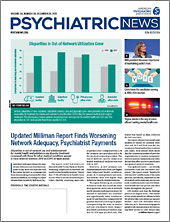One of the mysteries of posttraumatic stress disorder (PTSD) is that some people who suffer trauma develop the condition while others do not. Although factors such as the severity and frequency of the trauma are thought to play a role, research in Nature Communications offers insight into another contributor: genetics.
Using data from multiple studies conducted throughout the world, researchers from 131 institutions in the Psychiatric Genomics Consortium found that genetic makeup may influence the risk of developing PTSD in much the same way that it influences the risk of developing depression and other psychiatric disorders.
“There has been evidence from twin studies that risk [of PTSD] is heritable, but one thing we’ve learned over the past decade is that when you are looking at genetics you need really large sample sizes,” said Karestan Koenen, Ph.D., a professor of psychiatric epidemiology at Harvard T. H. Chan School of Public Health and a senior researcher in the study. “Our goal was to bring together as many investigators around the world [as necessary] to get enough people [in the sample] and enough data to identify genetic loci that may be involved.”
Koenen and her colleagues analyzed DNA samples from approximately 30,000 people who had PTSD and roughly 170,000 people who did not. They found variations in six loci—specific places on chromosomes where genes are located—that were greatly associated with an increased risk of PTSD. Three of the variants were found only in samples from men, two were specific to people of European descent, and one was specific to people of African descent. Together with other variants that appeared to have at least some association with increased risk, these variants explain between 5% and 20% of a person’s likelihood of developing PTSD, the authors wrote.
“No matter how we broke it down, men or women, African or European, the heritability was similar,” Koenen told Psychiatric News. “I was impressed with the consistency of results across the populations. I didn’t know if our data would be strong enough to show that.”
Koenen added that the results enabled the researchers to develop a polygenic risk score for PTSD, a measurement that could one day help predict risk based on an individual’s number of variants. For now, however, the polygenic risk score is best used by other researchers who are interested in models of risk prediction, she said.
“We’re currently not anywhere near the point where genetics can predict PTSD,” Koenen said. “Right now, the type and characteristics of trauma are much better predictors of whether someone will develop PTSD. We may be able to use genetics to improve diagnosis and treatment, but that’s 10 years down the road.”
The next step is to expand research to include even more participants to possibly identify more variants associated with increased risk. From there, researchers can drill down into what the results mean and better understand the biology of PTSD, said Koenen.
Although the results do not have immediate practical implications for treatment, patients may take comfort from the findings, Koenen added.
“There is a stigma with PTSD going back to World War I, where people say ‘If you were stronger, you could just get over it,’ ” she explained. The evidence that one’s genetic makeup may increase risk of PTSD following a trauma demonstrates “that PTSD is a real brain disorder and it’s not someone’s fault if they have it. Our hope is that these findings will reduce stigma and encourage people to seek help. There are many treatments that work for PTSD, and people can get better.”
This study was funded by Cohen Veterans Bioscience, the National Institute of Mental Health/U.S. Army Medical Research and Materiel Command, and One Mind and supported by the Psychiatric Genomics Consortium. ■
“International Meta-Analysis of PTSD Genome-Wide Association Studies Identifies Sex- and Ancestry-Specific Genetic Risk Loci” is posted
here.

